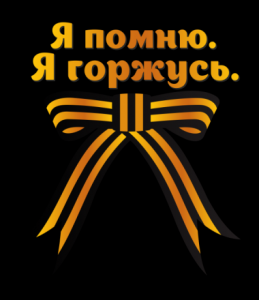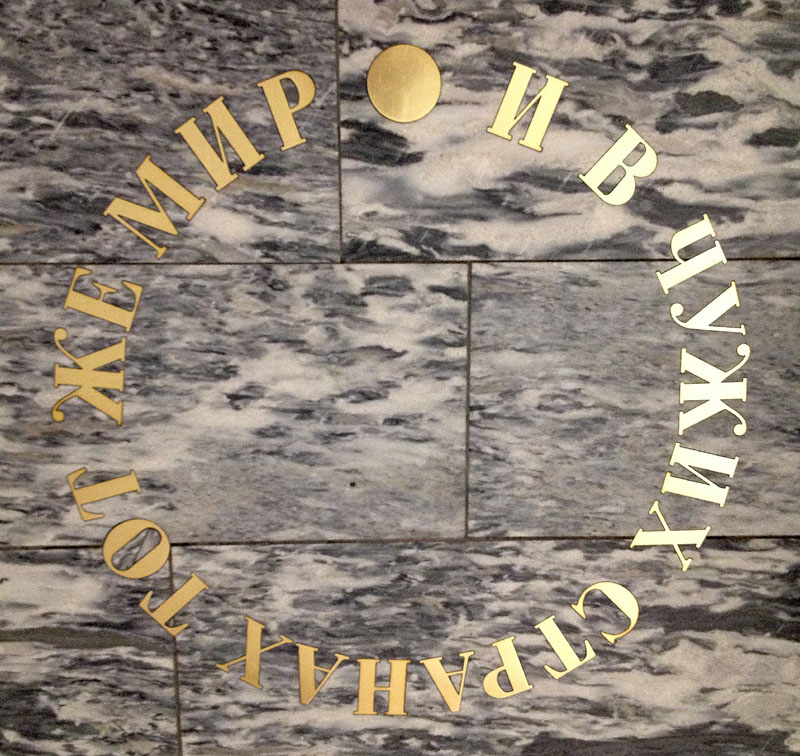
This article, first published on the 22nd of June 2015 at 04:00 in the morning, is a living, often-updated, tribute to my grand-uncle, who fought that war from the very first days and until the victorious end. Moreover, it’s a tribute to all 27 million Soviet citizens, who perished in that war, and tens of millions more, who suffered hardships and losses to bring about the Victory. It is therefore, when the Western “leaders” refused to attend the Victory parade in Moscow on the 9th of May 2015, they effectively did a dance of glee on the bones of those 27 million perished people, and were perceived by all Russians (and here I use “Russian” in a broad sense, encompassing all 200+ nationalities that live in the Russian Federation, all the normal people of the former USSR, and all the foreigners, who sympathise with Russia) as modern-time Western heirs to Nazism. I previously translated an article, written by the President of the RF, V.V.Putin, describing his family’s struggle in the blockaded Leningrad. In this article here, I will touch upon my own family’s history.

In 2015 the Russian Ministry of Defence launched a new web-site, consolidating, digitalising and geo-tagging all the newly-declassified information about those Soviet citizens, who fought (and died) in WWII, in the Great Patriotic War. The site is aptly called People’s Memory. A good English language article about it can be found at Russia Beyond the Headlines:
The new People’s Memory website, launched by the Russian Defence Ministry, is the largest of its kind in the world. The site, dedicated to those who served on the Eastern Front in World War II, allows users to locate the resting places of soldiers whose burial sites have remained unknown to their relatives until now, as well as acquire knowledge about their military careers.
 Knowing my grand-uncle’s name, family name and patronymic, as well as his year of birth, I managed to locate him, and what I learnt, confirmed those disjointed memories I had of him from my childhood. I vaguely remember his face, and more his blazer, covered in orders and medals. He used to visit us in Moscow between 23rd of February and the 10th of May, celebrating Victory Day and meeting with the ever-thinning numbers of his brothers-in-arms. From the stories, re-told by my mother, I knew that he fought in the War as part of a tank division. That he was at one point surrounded, cut off from the main force for several months. That for some time he was presumed dead, until their company managed to reunite with the main force. That at another point he received a heavy concussion, but returned into the ranks. And that he finished the War in Berlin. But not much more. People’s Memory allowed me to go deeper and see his path and the deeds that lead to the awards.
Knowing my grand-uncle’s name, family name and patronymic, as well as his year of birth, I managed to locate him, and what I learnt, confirmed those disjointed memories I had of him from my childhood. I vaguely remember his face, and more his blazer, covered in orders and medals. He used to visit us in Moscow between 23rd of February and the 10th of May, celebrating Victory Day and meeting with the ever-thinning numbers of his brothers-in-arms. From the stories, re-told by my mother, I knew that he fought in the War as part of a tank division. That he was at one point surrounded, cut off from the main force for several months. That for some time he was presumed dead, until their company managed to reunite with the main force. That at another point he received a heavy concussion, but returned into the ranks. And that he finished the War in Berlin. But not much more. People’s Memory allowed me to go deeper and see his path and the deeds that lead to the awards.
There is memorial public initiative in Russia, The Immortal Legion, where people add photos and what information they remember of their grandfathers and great-grandfathers, lest it is forgotten. I have enlisted Grand-Uncle Georji into the legion, publishing what I found here at the authentic Immortal Legion’s official site.
Moiseev Georgy Mihajlovich, born on November 11th, 1920 in Altai Krai in Siberia. At the age of 18, he was conscripted to the regular service as a tank mechanic in October of 1939. The regular service lasted at that time for 2 years, and in 1941 he would have been demobilised. But so came the War. He first became demobilised from the active army 23.11.1946. This date, over a year after the end of WWII in the European direction, makes me think if grand-uncle Georgy might have been deployed to China to liberate it from the Japanese occupation. However, I do not have any documentary evidence for that, besides this strangely late date.
Continue reading


